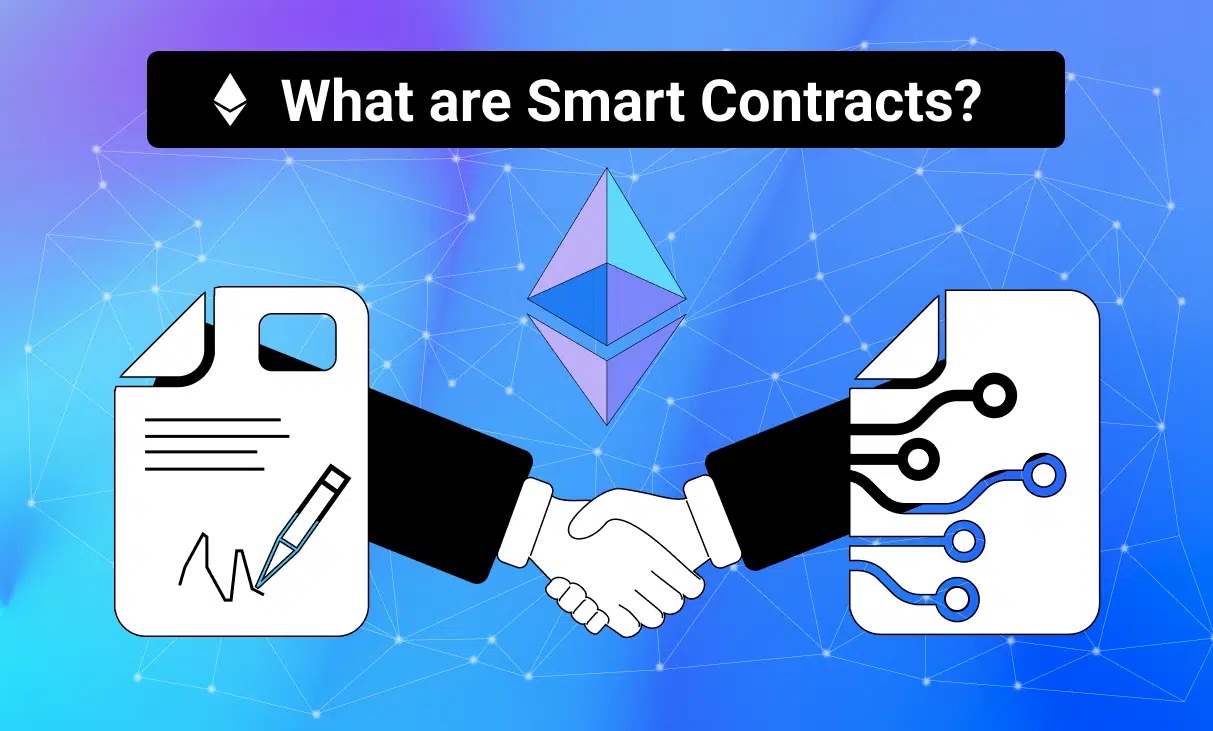By: Haley Magel
We have smartphones, smart TVs, smartwatches, and now even smart contracts. For those who don’t already know, a smart contract is a self-executing contract with the terms of the contract between buyer and seller being directly written into lines of code.[1] The code and the contract contained in the code exist across a distributed, decentralized blockchain network.[2] Blockchain is the technology underlying the cryptocurrency Bitcoin.[3] Blockchain is open and transparent for all to see, and the record is intended to be permanent and immutable.[4] Smart contracts permit transactions to be carried out without the need for a central authority, legal system, or external enforcement mechanism.[5] Because smart contracts are envisioned as potentially limiting the need for external enforcement of legal agreements, they are seen as making business transactions cheaper, quicker, and more efficient.[6]
This all sounds abstract, so let’s turn to an example to help structure the sequence of events. An insurance company promises farmer Bob, in return for a monthly payment, a lump sum in the event the temperature exceeds 100 degrees for more than five days straight during the term of the agreement.[7] The insurance company and Bob translate the provisions into software code, making sufficient funds available to fulfill their side of the agreement and digitally sign it.[8] Bob’s payments would automatically be deducted each month and credited to the insurance company’s account, while the smart contract would also be checking the high temperature on Weather.com each day.[9] If the temperature exceeded 100 degrees for six days, the lump sum payment from the insurance company would be transferred to Bob’s account, and the smart contract would terminate.[10]
Smart contracts sound like they could be extremely useful in that they are self-enforcing and circumvent the need for judicial enforcement, but there are of course shortfalls to be analyzed.[11] When there is contractual litigation, courts give great deference to longstanding principles such as good faith efforts, estoppel, or partial performance.[12] However, those principles will be impossible to apply to an executed smart contract since the content is irreversible.[13] The content is considered irreversible because the central idea of the smart contract is for parties to receive the predetermined outcome without altering the terms.[14] Further, business people will rarely want performance and enforcement of contracts to be automatic because circumstances change in unpredictable ways.[15] In practice, counterparties tend to only resort to the literal language in their contracts after the relationship between the parties has broken down.[16]
While the efficiency possible with smart contracts is attractive, there is still much to be fleshed out with how contract law would apply to smart contracts and whether the two can be reconciled as is or whether new law would be needed to regulate smart contracts.
[1] Jake Frankenfield, What are Smart Contracts on the Blockchain and How They Work, Investopedia (Mar. 24, 2022), https://www.investopedia.com/terms/s/smart-contracts.asp.
[2] Id.
[3] Id.
[4] Reggie O’Shields, Smart Contracts: Legal Agreements for the Blockchain, 21 N.C. Banking Inst. 177, 180 (2017).
[5] Frankenfield, supra note 1.
[6] O’Shields, supra note 4, at 178.
[7] Kevin Werbach & Nicolas Cornell, Contracts Ex Machina, 67 Duke L.J. 313, 331 (2017).
[8] Id.
[9] Id.
[10] Id.
[11] See generally O’Shields, supra note 4, at 185-93.
[12] Rakhil Kalantarova, The Ongoing Speculation About Smart Contracts: Smart Enough to Replace Third Party Arbitrators, or Is “Smart” Just A Misnomer?, 21 Cardozo J. Conflict Resol. 551, 567 (2020).
[13] Id.
[14] Id.
[15] Francesco Mazzotta, Sense, Sensibility and Smart Contracts: A View from a Contract Lawyer, 49 UCC L.J. 2 (2020).
[16] Id.

Image Source: https://blockgeeks.com/wp-content/uploads/2016/10/What-are-Smart-Contracts_.png.webp